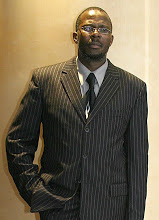INDEPENDENT-ON-SATURDAY 17 October 1998
TRANSFORMATION has become a buzzword in our contemporary democracy. The question which then arises is: how do we transform a heterogeneous country like South Africa without fanning the flames of racial prejudice?
This noble process is characterised by considerable debate and discussion as various views are put forward regarding the achievement of a truer democracy.
How will the Employment Equity Bill help towards transforming our society by eliminating apartheid's legacy of inequality?
Both the supporters and the vocal detractors of the new Bill merit some audience.
To the previously disadvantaged communities, the Bill is seen as the most comprehensive anti-discriminatory piece of legislation in our new-found democracy.
It is the relevant practical framework to redress past discrimination in the work-place.
Liberal
To the opponents of the Bill, who are our very own liberal comrades, they condemn it as the reintroduction of the very draconian principles of the National Party government's apartheid and racial favouritism. But the fundamental questions raised by the Bill are very straight-forward.
Should the Government invoke racially-biased legislation and policy formulation in
"Employmen Equity Bill requires a longer view
Far from being inimical to democracy, the Employment Equity Bill seeks to promote equality at the work-place, argues NKONZO MQADI
favour of disadvantaged groups in order to heal the social and economic wounds of the past?
Does the Government need to threaten punitive measures to accelerate black advancement?
In South Africa's unique democracy, much must be focused on the State's democratisation.
Does transformation equal democracy?
Race-based legislation would prove very contentious. Racial divide is at the very root of economic inertia in South Africa. Two major race groups in South Africa are on a collision course.
The formal job market sector continues to be dominated by those who benefited the most under apartheid.
Nevertheless, it is in meir interest to join the struggle to eliminate the prevailing imbalances.
On the other hand, proponents of this Bill are convinced that it seeks to give those who were oppressed during the apartheid era opportunities of which they were deprived earlier. The Verwoerdian-style image of largely white males in cushy jobs and black people doing menial labour is still embedded in the workplace.
How does the Government go about with the so-called "levelling of the playing fields"?
Shortage
Quite a pathetic position is advanced by Dr Anthea Jeffrey of the South African lnstitute of Race Relations who argues that'"there is evidence that the most important constraint on black advancement is not race prejudice, but the shortage of black people with the necessary skills and experience".
Why were black people under-developed? Is it true that many whites benefited from job reservation under the Colour Bar Act?
Let che black-led ANC Government champion the bread-and-butter issues of the poorer of the poor. The Government must serve to uplift the social and economic conditions of the disadvantaged black people.
The anti-apartheid struggle for freedom were very much about access to socio-economic opportunities.
We must stop clouding the Bill in political rhetoric and emotive statements. We must look at the Bill in terms of South Africa's long-term economic prospects, not in terms of the delicate state of race relations.
Notwithstanding foreign investments, the Government of the day must stop the appeasement policy to the "captains of industry".
Mr Godfrey Ohphant, ANC MP and chairman of the Parliament Portfolio Committee on Labour, sums it up like this: "You cannot redress past injustices if you deny history The Bill, therefore, recognises groups in order to provide an effective framework to, among other things, de-racialiset our society "
As we attempt to redress the inequalities so prevalent in our wonderful Rainbow Nation, the Bill's detractors will tell you that the best way to address the apartheid legacy is to train and educate people to take up their rightful place in the economy
No advocate of equity other than Deputy President Thabo Mbeki, sums up this debate on transformation better: "If the real problem we face - of ending the legacy of the past - persists, it will not be because we are cursed with the gift of diversity".
Nkonzo Mqadi is a University of Durban-Westville political science graduate and is presently doing his second year LLB degree at that university.
Tuesday, August 11, 2009
Subscribe to:
Post Comments (Atom)



No comments:
Post a Comment